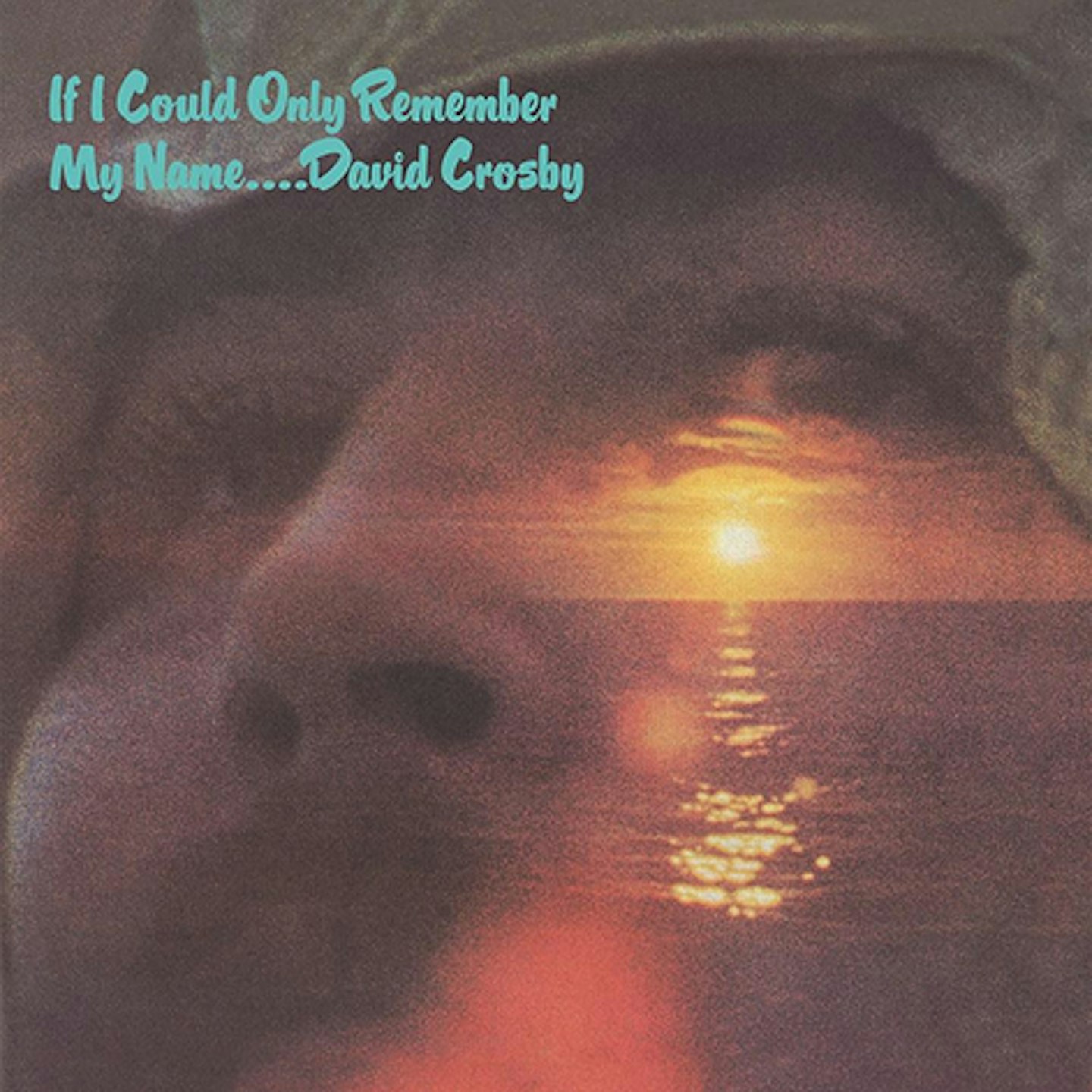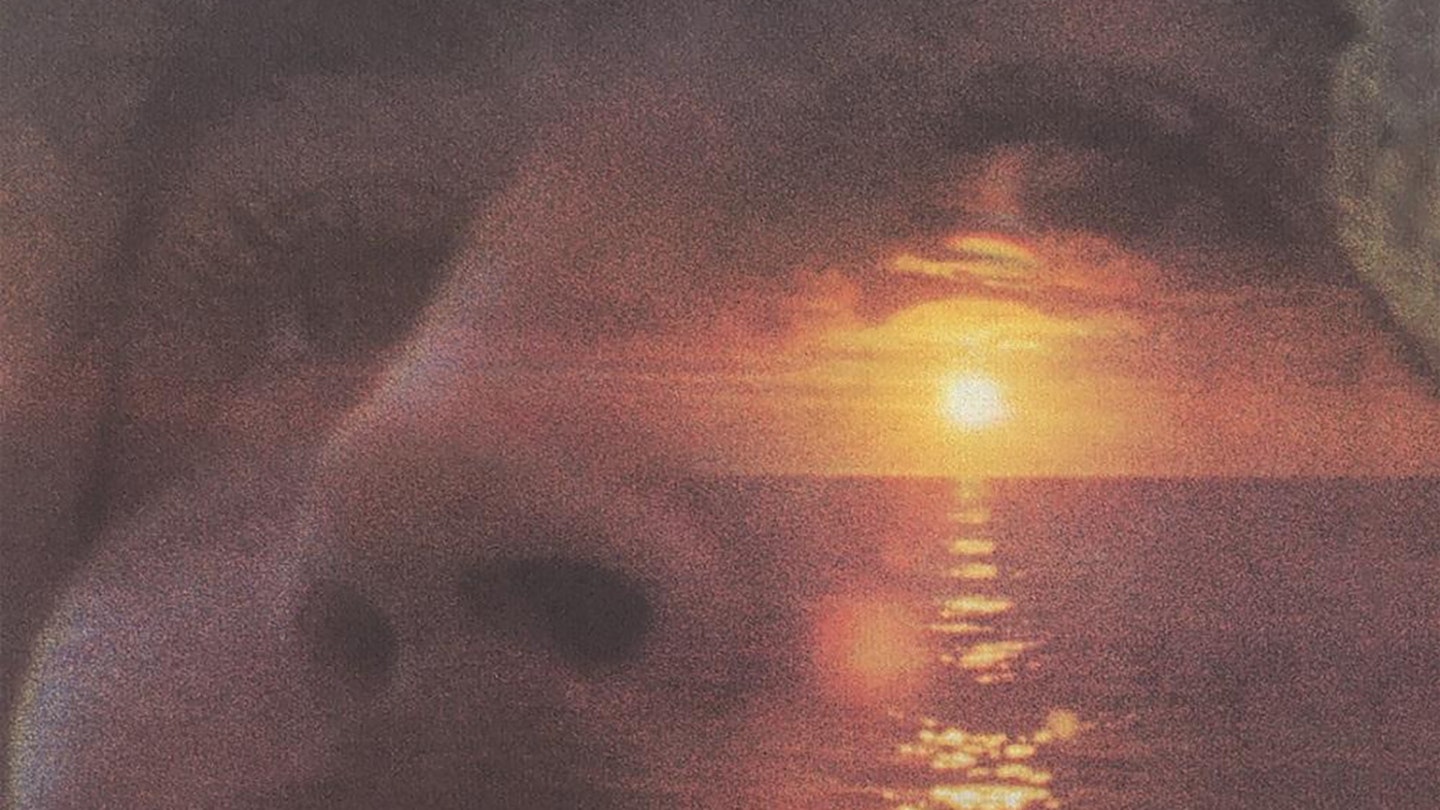In 1971, David Crosby confronted grief, and a solo career, to create an ethereal masterpiece. With a little of help from his friends.
David Crosby
HHHHH
If I Could Only Remember
My Name
RHINO. CD/DL/LP

Contrary to popular opinion, the most stacked supergroup of the early 1970s was not Crosby, Stills, Nash & Young. CSNY were not even, in fact, the most auspicious collective to include David Crosby, Graham Nash and Neil Young at the time. That honour went to a bigger, wilder, albeit less-heralded amalgam known briefly as The Planet Earth Rock And Roll Orchestra.
Its discography was sketchy, its personnel fluid, but PERRO pivoted around Crosby, Nash and most of the Grateful Dead and Jefferson Airplane, with auxiliary memberships for Young and Joni Mitchell, among others. Named by Jefferson Airplane guitarist Paul Kantner, they convened for his late 1970 album, Blows Against The Empire; a baroque psych gang show that recast the counterculture’s desire to escape urban life as a sci-fi mission to distant planets rather than as a rural property grab in Laurel Canyon or Marin County.
Crosby had moved next door to Dead drummer Mickey Hart’s Marin ranch in late 1969, and the Orchestra members had many other things in common, not least a fondness for Wally Heider Studios in San Francisco’s Tenderloin, and for Kantner’s awe-inspiring “Ice Bag” weed. It was at Heider’s that CSNY had battled through Déjà Vu, and where the Dead had crafted the sepia-toned epiphanies of American Beauty. As sessions for that last album were winding down in the summer of 1970, the Orchestra’s amorphous jams began to coalesce into their finest achievement. The stories that have become legend about Crosby and his circle often fixate on feuding, egomania, patterns of behaviour that in most every light look morally unconscionable. But If I Could Only Remember My Name reveals an alternative, parallel truth: a solo album, predicated on one man’s grief, where a musical community came together to help him transcend it.
“Look, Man, I Did Everything Wrong…” David Crosby Remembered
On the morning of September 30, 1969, the same week that the first CSN album went gold in the States, Crosby’s girlfriend Christine Hinton handed over a few joints to Crosby and Nash, loaded her cats into a green Volkswagen bus, and left their Marin place on the way to the vet. En route, she crashed into a school bus coming in the opposite direction; Crosby would have to identify her body later in the day. The tragedy did not derail work on Déjà Vu,
and by the summer of 1970 Crosby was still processing his loss. “I didn’t have any equipment to deal with that,” he told Jesse Jarnow for the Good Ol’ Grateful Deadcast in 2020. “The only place that I knew I wouldn’t be utterly terrified and crying and distraught was in the studio… They all knew that the only time I was happy was when I was singing, so they got me singing every chance they could get. It was an act of kindness, but it was also joy, man.”
A large cast moves with great discretion, giving Crosby space to express himself, psychedelic and medieval.
If I Could Only Remember My Name had a large cast, but they moved with great discretion. There were communal healing rites like the opening Music Is Love, and one solemn indictment of The Man – What Are Their Names, featuring a chorale of Nash, Young, Mitchell, Kantner, Jerry Garcia, Phil Lesh, Grace Slick and David Freiberg (“Peace is not an awful lot to ask…”). Mostly, though, their presence was blurred and indistinct, giving Crosby the space to express himself in the distrait way – abstracted tunings, wordless harmonies, an aesthetic at once psychedelic and medieval – that he’d been finessing since his time in The Byrds.
Pieces like Tamalpais High (At About 3) and Traction In The Rain were ravishing, ethereal developments on what he had begun to achieve with Everybody’s Been Burned and Triad. Many of the songs had, it transpired, been works in progress long before Hinton’s death. Among the treasures on disc two of 2021’s 50th anniversary reissue, five key demos date back as far as spring 1968, including a wondrous solo Laughing. It’s one of the finished album’s enduring miracles that the released version, with Mitchell and Nash providing vocal textures and Garcia bathing the song in diaphanous pedal steel washes, retains every bit of the demo’s fragility.
Of the 14 extra tracks assembled for the package, three have surfaced previously: the gorgeous Kids And Dogs, a Crosby and Garcia acoustic improvisation that first turned up as the sole bonus track on the 2006 reissue; a ’69 demo of Song With No Words (Tree With No Leaves), from a 1991 CSN box set; and an alternate version of Cowboy Movie, from Crosby’s 2006 Voyage comp. The last is especially worth rediscovering, featuring as it does Neil Young duking it out with Jerry Garcia in a jam that recalls CSNY live versions of Down By The River (Garcia, out of character, affects the sputtering, indignant Stephen Stills role).
“Music Pinned Me To The Map…” David Crosby Interviewed
What you don’t get are any of the sprawling PERRO bootlegs (some reputedly capture the band being paid in dope), or live tracks by the short-lived Crosby/Dead side-project David And The Dorks. Instead, there are prototypes of five tunes – The Wall Song, Games, Where Will I Be?, Critical Mass, Dancer – that would eventually grace Crosby & Nash albums in 1972 and 1976.
There is also one more or less complete song that’s never been officially released in any form. Coast Road features Crosby and Nash on acoustics, alongside one of PERRO’s less famous participants, Laura Allan, on autoharp. The prevailing air is one of hazy transcendence – the subject matter, ostensibly, is the sun peering through Marin County fog – and the music is spectral and delicate even by the ineffably spectral and delicate standards of If I Could Only Remember My Name. Spiritually, though, Coast Road’s value is easier to quantify: that the acts of making, sharing and listening to music can help brighter times gradually emerge. Recalling the sessions to Jesse Jarnow, engineer Stephen Barncard described tunes manifesting out of “dicking around”. “David was so happy, jumping up and down, so open,” he continued. “You know the cosmic thing where you leave a space for something to happen? Well, that’s what David did.”
BECOME A MOJO MEMBER today and receive every new issue of MOJO on your smart phone or tablet to listen to or read. Enjoy access to an archive of previous issues, exclusive MOJO Filter emails with the key tracks you need to hear each week, plus a host of member-only rewards and discounts.
